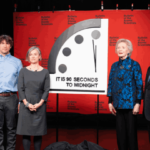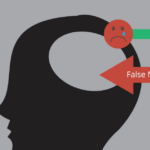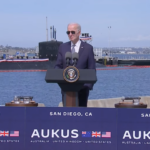Silencing Journalists Threatens Democracy: An Interview with Award-Winning Journalist Peter Greste

Prior to the 9/11 terrorist attack, there was only one specific piece of anti-terrorism legislation in Australia – a local law in the Northern Territory. Now, there are a staggering 82, with five more currently being considered by parliaments.
As you may expect, the laws encapsulate direct acts of terrorism – including violent extremism and cyber warfare offences – but also indirect acts – including foreign incursions, recruitment offences and the promotion of terrorist ideology.
While the prevention of both direct and indirect acts is arguably necessary to protect the lives of citizens, Professor Peter Greste explains to Sydney Criminal Lawyers how even legitimate journalism has been criminalised by recent laws.
Security vs free speech
“The underlying intention is to prevent journalists from revealing secret information that could compromise national security. Obviously, this is an important measure in Australia’s fight against terror,” says Professor Greste.
“However, the laws are too loosely drafted to allow legitimate reporting of government behaviour. We have already seen this earlier in the year when the Australian Federal Police (AFP) raided the home of Newscorp journalists – and I fear that more similar events will occur unless we do something about it.
“Media reporting of government behaviour will always be required to support our democratic society, but it’s currently too much of a grey area and many journalists are now afraid to do their jobs,” he continues.
“There are some measures in place in the form of government directives (such as a recent one from the Attorney General), but I don’t believe this is enough. We need protections that are separate, and not at the whim of a politician.”
Professor Greste understands the knock-on effects of this “legal minefield”, firsthand. During his time reporting for Al Jazeera news in Egypt, Greste was captured and imprisoned, when officials decided his journalism may be compromising national security.
“My experience in Egypt may be extreme, but the imperatives that led to my arrest there are the same ones driving Australia’s constitution,” he remarked.
“I completely understand why we need to update our laws to tackle terrorism, but that shouldn’t be at the expense of press freedom, which after all is a cornerstone of our democracy.”
Media Freedom Act
Professor Greste has proposed a Media Freedom Act, which he believes may bridge the gap between national security and democracy.
“This could give courts a benchmark when adjudicating on such a case and would also inform the drafting of new national security legislation.
“Obviously, it’s not quite as good as a constitutional amendment, but it’s the next best thing. And probably a lot more realistic, given the challenges of getting an amendment through a referendum.
“Australia is currently one of the few western democracies not to have media protections woven into its constitution and it’s high time we caught up with our global peers.
“Obviously, I don’t think it’s a good idea to have totally uninhibited press freedom. We need mechanisms that prevent the leaking of secret information that genuinely compromises national security. But legitimate journalism that holds governments and agencies to account for their behaviour, isn’t the same thing.”
Political controversy
The jury is out and though governments recognise the issue, they are still a fair way from a resolution, Greste argues.
“Two parliamentary inquiries are now underway and the Attorney General has ordered that he must sign off on all prosecutions against journalists. This is obviously a positive step in the right direction.
“However, I am concerned that populist pressure to protect the safety of citizens may stand in the way of further progress.
“Strict anti-terrorism laws are an easy-out, and any party not treating these crimes with a heavy hand may be politically vulnerable.
“Whether the threat of terrorism has been overstated or not, people don’t forget acts of violent extremism in a hurry. They stand out in the memory like a sore thumb and, quite rightly, ignite the most impassioned of responses from the general public.
“Silencing journalists is a threat to our democracy which I believe carries a, potentially, very heavy price tag also. But we don’t have as many high-profile cases of political scandal in our recent memory to fall back on. The hypothetical threat of government parties acting in secrecy doesn’t have the same affective undertone as acts of terrorism – and so it is less pertinent in the collective conscience of the general public.
“It may be a challenge to gain social licence for a Media Freedom Act, but nonetheless we should at least try.”
Biography
“Professor Peter Greste is an award-winning foreign correspondent with 25 years experience working for the BBC, Reuters and Al Jazeera. He has reported from the frontlines of countries such as Afghanistan, Latin America, Africa and the Middle East, but made headlines himself when he and two co-workers at Al Jazeera were arrested in Cairo and charged with terrorism offences.”
“Following his imprisonment, Greste became an advocate for media freedom and has earned a plethora of awards in the process – including Britain’s Royal Television Society, the Walkley Foundation, the RSL’s ANZAC Peace Prize, the Australian Human Rights Commission’s Human Rights Medal, and the International Association of Press Clubs’ Freedom of Speech Award.”






